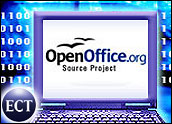
Google is gearing up to launch its Android Market — the open source phone software’s answer to Apple’s iPhone App Store. Staying true to the open model, the platform will allow more instant developer access compared to Apple’s approval-based system and will also offer a set of tools for developers to track their business progress.
Perhaps most significant, though: The Android Market won’t be the end-all for Android-based application distribution. While the official store will be the one pre-installed on all Android phones, Google plans to keep options open for anyone to create their own interfaces with their own products — a distinct turn away from Apple’s closed approach.
Open Market
Getting a tool into the Android Market won’t be difficult. Developers have to first register as an official merchant. After that, all that’s required is uploading programs and descriptions and hitting a “publish” button, and it’s live. The iPhone App Store, in contrast, puts potential products through a review process before posting them and has also moderated its offerings, sometimes removing apps from the line-up after they’ve been available for some time.
“The user has full control with the rating and permissions system we’ve set up. By using a feedback system similar to YouTube, users will be able to see the higher quality rated apps. With the permissions model, users are able to view the areas the app will access on their device and choose whether or not to install,” Google spokesperson Meghan Hughes told LinuxInsider.
Google’s interface will offer a user feedback and rating system described as being “similar to YouTube.” It’ll eventually provide developers with a full dashboard and set of analytics tools, compared to the simple download count given on Apple’s store.
The first handsets will include a beta version with free apps up for grabs. An update with support for paid content and more advanced features is expected to follow shortly thereafter.
Quality Considerations
The quality of the Android Market could prove to be a strong factor in determining the Android products’ success. Though it won’t compete directly with the Apple alternative, since the two service different systems, the appeal of the store could draw customers over to Android — or keep them away.
The first set of applications being displayed by Google come from its Android Developer Challenge competition. The winning programs include an app that can locate and call a cab company in your current location, a program that lets you scan a barcode and automatically compare prices and product reviews, and a location-aware app that changes your phone’s settings — say, ringtone or volume — based on your whereabouts. The breadth of options, though, may not be the only factor customers consider.
“The basis of competition is where it’s likely to be interesting, both in terms of the quantity and quality of applications — but maybe even more importantly in terms of the ease of use,” Dan Hays, director of PRTM Management Consultants, told LinuxInsider. “That’s where Apple with their iPhone App Store seems to have really struck a nerve. They’ve made it incredibly easy for users of the device to get at the applications,” he noted.
Carrier Questions
Within users already committed to Android, the more direct competition may come from third-party distributors, Hays suspects — portals such as Handango that offer solutions for multiple mobile operating systems. But the biggest hurdle will be showing the viability of Android in general. While T-Mobile is rumored to have the first device on schedule for a 2008 release, no widespread availability has been announced as of yet.
“One of the great successes for the iPhone is that it’s been very successfully placed in carriers’ catalogs around the world. There’s not a clear picture yet for Android-based devices,” Hays pointed out.
Still, touting the Android Market early may prove to pay off in the end. After months of talk and speculation, it gives a much-needed indication of progress to the buying public.
“It sort of gives people a picture of where things are headed,” Hays commented. “It shows that we’re not just building the operating platform, but we’re actually headed toward building the ecosystem.”


















































